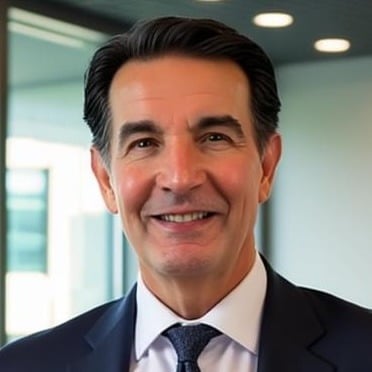I recently read an article from Fast Company’s World Changing Ideas series titled “Everybody poops, but not everybody’s poop gets spontaneously combusted under water.”
Excerpt from the article: “Around the world, 4.2 billion people - nearly half the global population - either don’t have a modern toilet or use sewage systems that release untreated human waste into the environment.”
The basic concept (I am paraphrasing from the article) is that the super toilet exposes feces to intense heat and pressure to enter a phase of matter known as a supercritical fluid where the feces spontaneously combust underwater. The water from urine is purified and used to flush the toilet, while the feces are transformed into small, odorless “feces cakes,” which can be composted or thrown in the trash.
Interesting use case – dubious business case! Let’s break it down and apply some critical thinking to this concept.
Let’s apply some critical thinking!
Use Case #1: Creating Fecal Cakes in Developing Countries
Let’s start out with an excerpt from the article: “Around the world, 4.2 billion people - nearly half the global population - either don’t have a modern toilet or use sewage systems that release untreated human waste into the environment.”
So far, so good. It’s an assertion, presumably fact based, and I’ll take the article’s assertion as accurate. I’ll assume that the reference to a “modern toilet” means a toilet the flushes using water and flows to some form of sanitary sewer or septic tank vs. an outhouse.
What parts of the world do not have modern toilets or use sewage systems that release untreated human waste into the environment? My hypothesis is that some proportion of second-world countries and an even higher proportion of third-world countries as well as geographically remote and sparsely populated areas fit this classification.
Continuing with my hypothesis – most populations that fit this classification, other than people choosing to live “off grid”, are somewhat to relatively impoverished and have limited access to abundant and stable electrical power relative to people that have access to modern toilets.
So, are these populations good candidates as early adopters for the super toilet? Let’s apply some critical thinking. What is needed to operate a super toilet in a production/commercial environment:
-
Customers (individual owners/operators) that can afford and are willing to pay for the super toilet and processing mechanisms.
-
Customers that have the capabilities and are willing to learn how to operate and perform basic ongoing preventative maintenance (filling consumable chemicals, routine cleaning of pipes and filters, etc.) of the mechanisms.
-
Customers that have the electrical power to operate the mechanisms – assuming achieving superfluidity requires electrical energy to achieve the superfluidity state and reaction. However, it might be that the reaction is created chemically, which means that the owner/operator needs access to sophisticated consumable chemicals and a safe place to store these chemicals.
-
Customers that have access to appropriate technical support. The super toilet mechanisms are technologically and mechanically sophisticated. Accordingly, the mechanisms will break down occasionally and therefore will need a competent, affordable technician (with ready access to spare parts) that is reasonably responsive to a service call. Otherwise, the outhouse approach will be used during downtime.
There are probably other customer factors to consider, but you get the point. So, the use case is to create biodegradable fecal pellets. However, based on the bullet points above, is there a compelling business case from a consumer perspective to acquire and operate a super toilet? This is a dubious assumption for the 4.5 billion people that either don’t have a modern toilet or use sewage systems that release untreated human waste into the environment.”
Use Case #2: Developing Fecal Cakes in Developed Countries
What about the other 4.5 billion people that have modern toilets and/or have access to sewage systems that do not release untreated human waste into the environment - do they need a super toilet?
I live in Denver. It’s a rapidly growing technologically advanced city, I have a super-fast internet connection to my home – important to receive ongoing updates to the super toilet software and, of course, remote monitoring and diagnostics, abundant reliable energy at a relatively reasonable cost, excellent professional/maintenance support services, and amazing access to worldwide logistics (think rapid access to sophisticated spare parts).
These are all important factors in the ongoing support and sustainability of a super toilet. Also, I am a technology “early adopter” and would love to have this product to honor the technological ingenuity and the “cool” factor of the technology - and of course I am willing to deal with what I suspect will be significant ongoing mechanical technological breakdown factors. Accordingly, I would keep at least one active traditional modern toilet in production (my neighborhood does not allow outhouses).
However, regardless of the early adopter and “cool” factors as well as environmentally friendly fecal cakes, I am not willing to pay $50k per unit plus the ongoing maintenance and support costs.
Let’s Break it Down
-
Denver is rapidly growing as are many cities in the U.S. Will the conversion of poop to fecal cakes significantly reduce the need to expand the local sewage system and treatment plants? Doubtful for Denver, but perhaps there is a business case in third-world countries.
-
Denver is prosperous. However, are there sufficient early adopters willing to pay $50k for a super toilet? Doubtful in Denver and much more doubtful in third-world countries.
-
Denver is technologically advanced. Looking at the pic of the back-end processing unit, the super toilet requires a lot of ongoing maintenance and sophisticated consumable chemicals to enable the super fluid underwater combustion reaction. However, are there sufficient early adopters willing take on this project? Doubtful in Denver and much more doubtful in third-world countries.
-
Denver has abundant reasonably priced energy. The super toilet is energy intensive. Accordingly, the energy economics of the super toilet might make sense in Denver, but probably not in most third-world countries.
Summary/Conclusion
How many third world countries have sufficient prosperity, abundant electrical power, availability of spare parts and consumables, technical support, and access to internet connectivity to download software updates?
To be clear, I am not at all critical of this technology. Quite the contrary, I think it’s very clever, “cool”, provides value in a narrowly defined application space and serves an environmentally noble purpose.
However, in my opinion, the conversion of poop to fecal cakes is an interesting use case lacking a compelling commercially viable business case – at least at this point in its developmental stage.
So, that’s what I’m thinking, what do you think? I have no shortage of blind spots!
* * *
My overarching purpose of this post is to demonstrate the application of critical thinking and reasoning to business initiatives, use cases and business cases – and have some fun along the way.
P.S. Also take a look at this article: A new "space age" self-cleaning public toilet in San Francisco's Embarcadero broke down after just three days in service. This is a new high-tech public toilet that broke down during the auto cleaning process in the high-tech city of San Francisco after just 3 days of production use. It’s simply a toilet that self-cleans. It does not have the numerous high-tech moving parts of the super toilet destined for use in third world countries!
Subscribe to my blog | Visit our Knowledge Hub
Visit my YouTube channel | Connect with me on LinkedIn
Check out our Business Analysis Training Courses and Consulting Services

 Login
Login




















